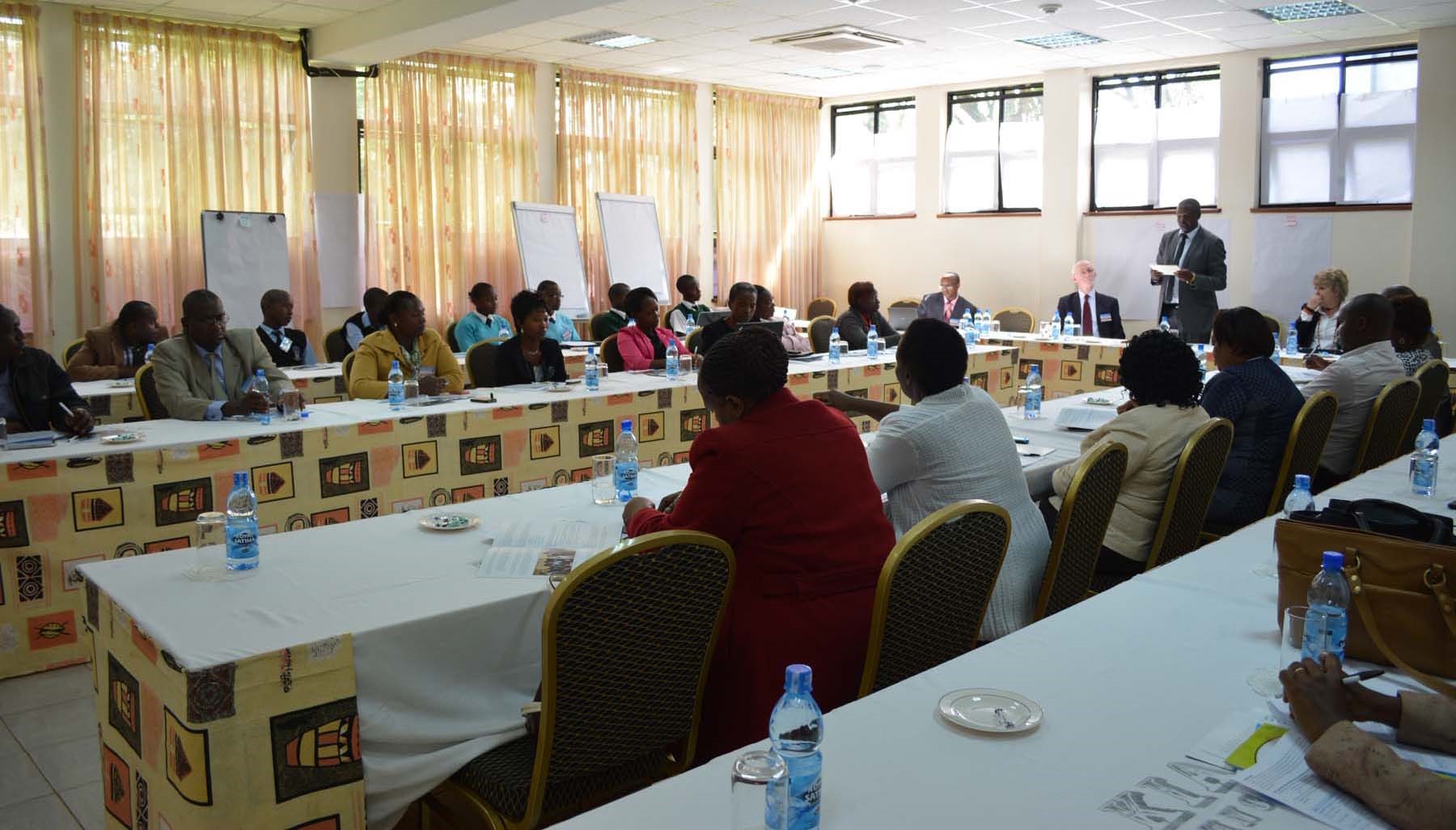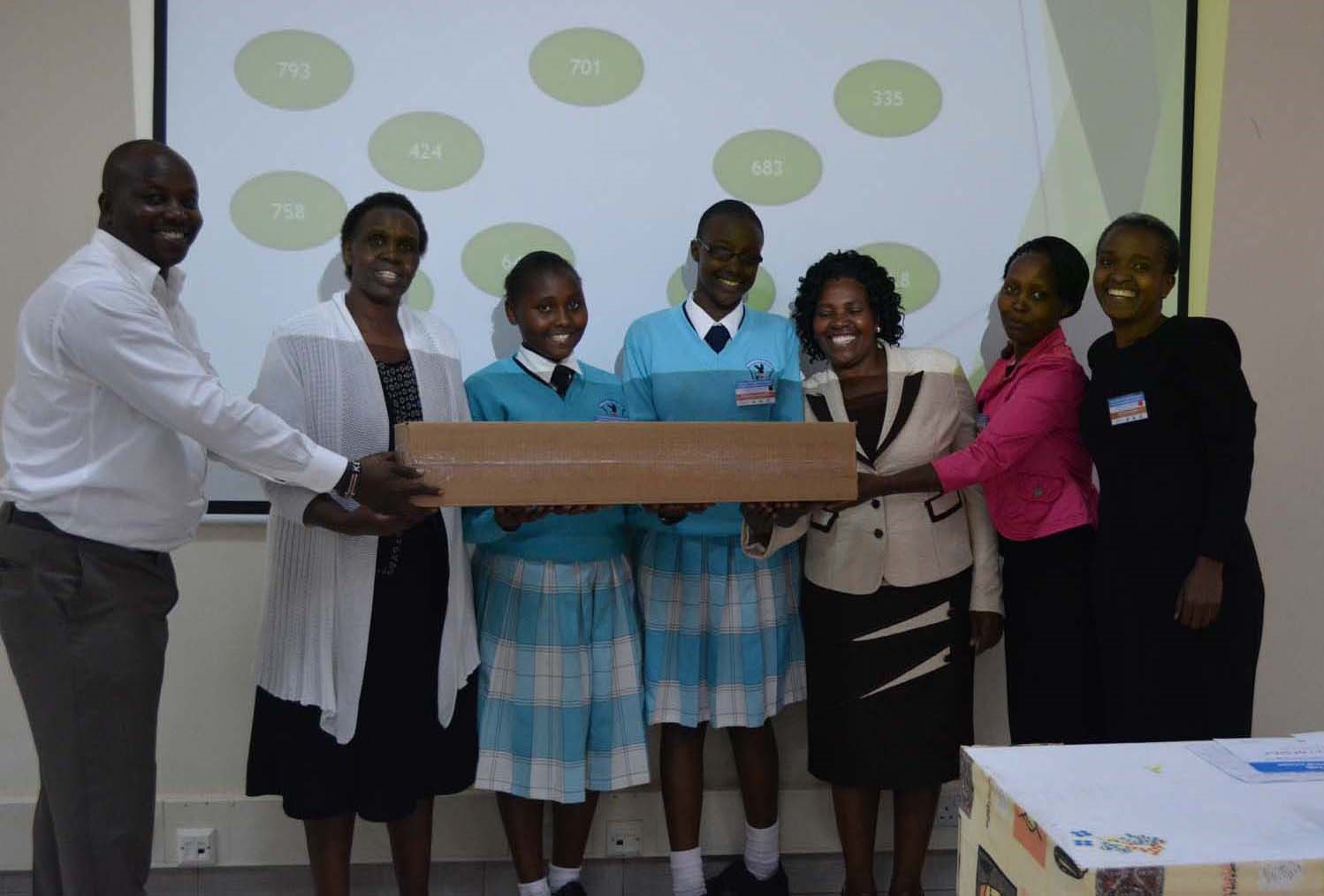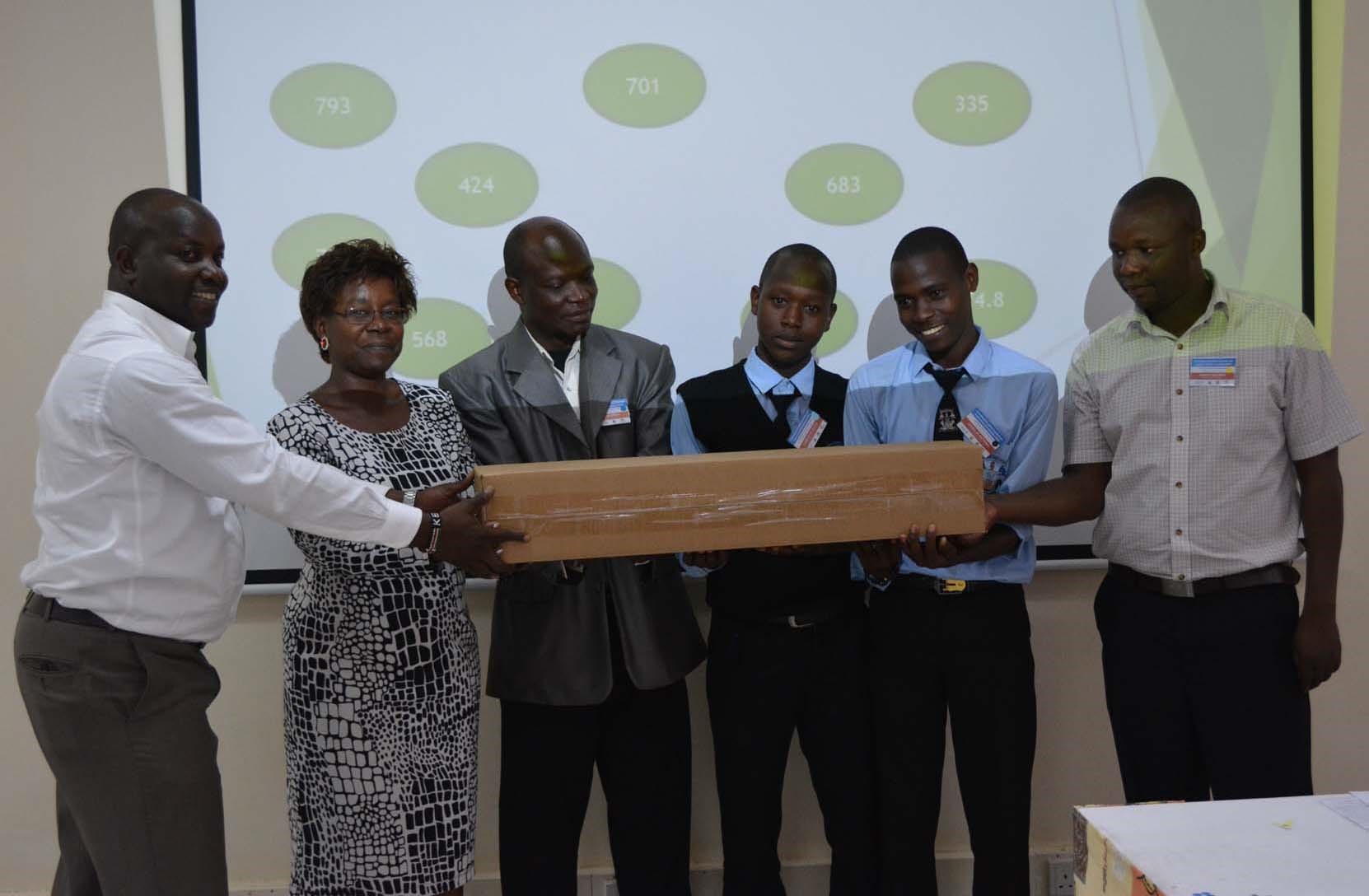Kenyan students awarded in project-based learning
Outstanding secondary students and teachers’ who participated in project-based learning under the Strengthening Innovation and Practice in Secondary Education (SIPSE) project were honoured Thursday 14 May 2015 during the national policy workshop held at the Kenya School of Government, Nairobi.
The awards presented recognised the best project-based learning projects in STEM subjects from two counties in Kenya under the SIPSE programme. From 20 February to 27 March 2015, students carried out competitive educational projects in Biology, Math, English, Chemistry, Physics and ICT with the support of their teachers building up to the awards ceremony.
Guests and sponsors who attended the event included officials from the Ministry of Education, Kenya Institute of Curriculum Development (KICD) and the Centre for Mathematics, Science and Technology Education in Africa (CEMASTEA).
Stephen Mbogua, the Assistant director in the Directorate of Secondary and Tertiary education and Desk officer of the ICT integration team in the Ministry of Education lauded SIPSE for generating informed understanding of issues of ICT integration in teaching and learning – from classroom to policy formulation. “SIPSE is contributing towards an ICT literate workforce, which is the foundation for Kenya to achieve its goal of dynamic and sustainable economic development,” he said in a speech on behalf of the director of Secondary Education. Mr. Mbogua challenged the students to make the best out of the opportunity gained through SIPSE and live out the success stories. “You are lucky to have been a part of this out of the 2.1 million students in Kenya.”
SIPSE worked with 10 schools in Kenya – five from Nakuru county and five from Machakos county. Nakuru Girls High School with a project on e-waste (ICT) emerged the best overall from Nakuru (793 points) and Mumbuni Boys High School with a project on building construction (Physics) was the best from Machakos (758 points). The score was calculated based on the projects’ presentation, research, communication skills, organization and overall school participation. Both schools won an e-beam from Platinum Associates, an interactive whiteboard system that transforms any standard whiteboard or other surface into an interactive whiteboard.
Mwala Secondary School (project on drug abuse) from Machakos and Nakuru High School (project on water pollution) from Nakuru also made it to the finals. Other top schools at the regional level were Bahati PCEA Girls, Jomo Kenyatta High School, J. M. Kariuki Memorial and Nakuru High from Nakuru County; and Ikombe Secondary, Masii Girls, Mwala Secondary and Vyulya Girls from Machakos County. SIPSE also worked with 10 schools in Mwanza region in Tanzania, where two weeks ago Ngudu Secondary School (project on mobile use) was recognized as the best school.
“Project-based learning brings out 21st century skills that students need in order to succeed in the information age. Teachers in the SIPSE programme were equipped with skills in integration of ICT in teaching and learning to encourage students to build on learning skills such as critical and creative thinking, collaborating and communication,” said SIPSE project manager Esther Mwiyeria.
Platinum Associates donated two e-beams, ten 1TB external hard discs and six 32GB USB sticks; Cadbury donated twenty-four beverage cans; the Jomo Kenyatta Foundation gave books worth KES. 40,000 and Microsoft donated fifty CDs with content on creative thinking.
SIPSE was funded by the MasterCard Foundation. Other past sponsors have been A-Z Technologies, Access Kenya, Orange Kenya Limited, Roskar Travel and the Sarova Group.



